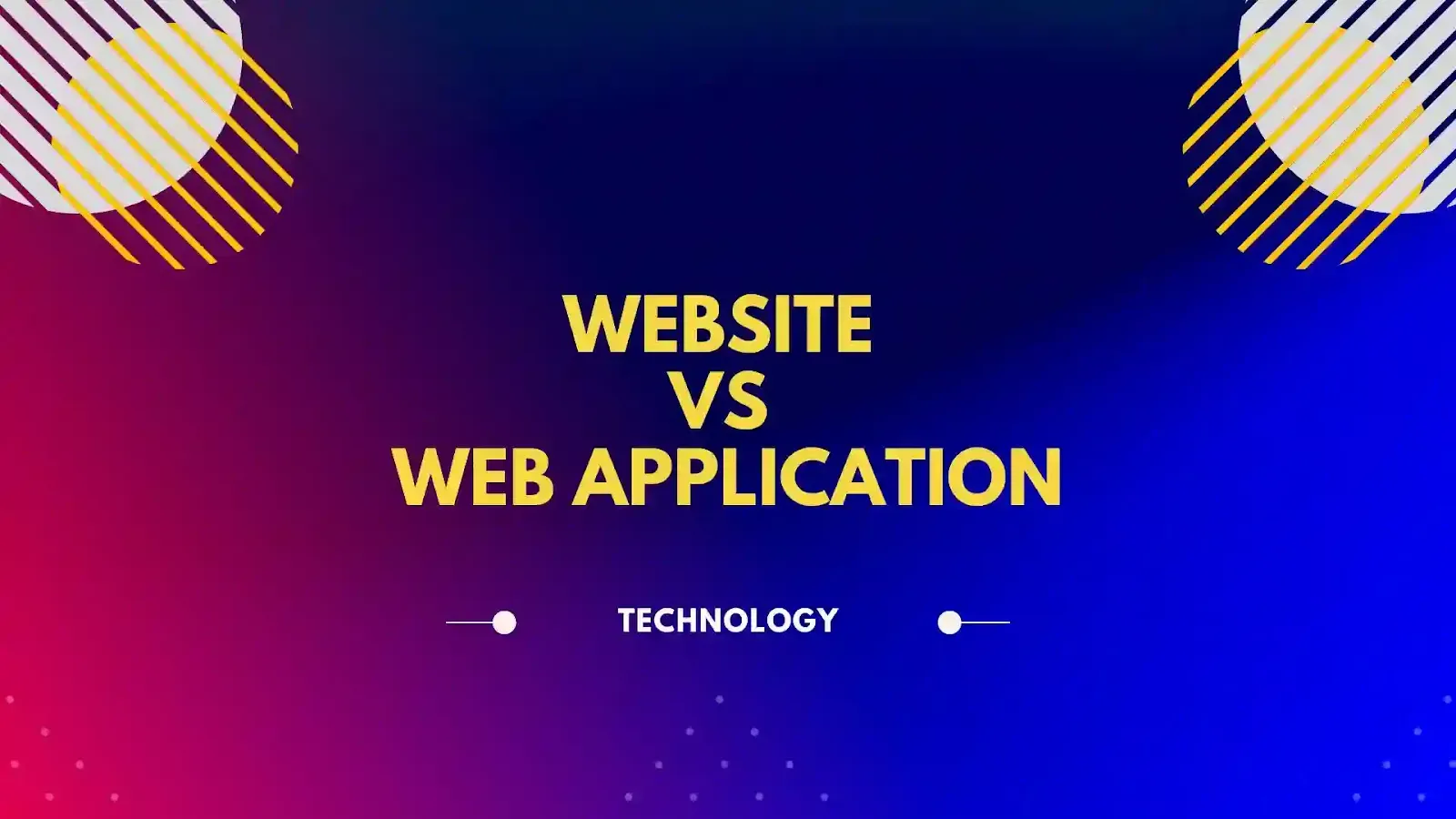
What is a Website?
Website is built with a minimal number of tools and needs only static HTML files, CSS styles and some front end CSS frameworks.
Types of Website: Blogs, Portfolios, Landing Pages, Standard simple HTML, CSS websites.
Websites do not need to set up a verification process because users do not interact with the content.
Its purpose is to provide information about the site to visitors.
Cost is usually less expensive.
Technologies used: HTML, CSS, JavaScript, XML
Risk of errors are less on Static Websites
Average production time - can be finished in a few days or in a few hours of time.
What is a Web Application or Web App?
Web App is a kind of application which is built using various technologies and it requires both front-end and back-end with various technologies.
Types of Web Applications: Dynamic Web App, CMS(Content Management System), Portal Web Apps, E-commerce web app.
Web app, where users can create content, transmit sensitive information, & send private messages, authorization is required.
Its main purpose is to interact with the users.
Cost is more expensive than the web app and it also depends on the complexity of the project.
Technologies used: HTML, CSS, JavaScript, Python, Java, Ruby on Rails, Kotlin, SQL, MongoDB,.. and many more based on project level activities and requirements.
Risk of error is relatively high and should be handled properly.
Average production time - it depends on project level activities and requirements. It can take days, weeks, months and years for development.
Mobile Front-End Technologies used by IT Companies
Android Studio is the official integrated development environment (IDE) created and being developed by Google Inc. It is commonly used for Google's Android operating system. Java is the major programming language which is used for building Ul.
Xcode is Apple's integrated development environment (IDE) for macOS or iPadOS. It is basically used to develop software for iOS, iMac, macOS, iPadOS mobile software and application software. Objective C and Swift are the officially used software languages.
React Native is an open-source mobile application framework created and being developed by Facebook, Inc now known as meta. This native framework is used to develop cross platform applications by enabling developers to use React's framework along with native platform capabilities.
Web Front-End Technologies used by IT Companies
HTML: The HyperText Markup Language or simply called as HTML. This HTML is a standard markup language for document structuring on web pages. Simple to use and whosoever want to grab job in web designing or web development should start with HTML.
CSS: Cascading Style Sheets or simply called as CSS. CSS is a style sheet language used for describing the presentation of a document written in a HTML language.
JavaScript: It allows us to add dynamic behaviour to the web page and to add special effects to the web page.
React: React is an open-source Front-end JavaScript library for building user interfaces or UI components. React Front-end service is developed and being maintained by Facebook(Now known as Meta).
Technologies used by Top IT Multinational Companies:
Here are the 15+ languages that majority of the IT companies use for web designing, web development, mobile app designing and development.
Technologies used by Google:
- Front-end: JavaScript, Typescript
- Back-end: C, C++, Go, Java, Python,
- Database: Bigtable, MariaDB
Technologies used by YouTube:
- Front-end: JavaScript
- Back-end: C, C++, Go, Java, Python - Database: Vitess, MariaDB, BigTable
Technologies used by Amazon:
- Front-end: Javascript
- Back-end: C++, Java, Perl
- Database: DynamoDB, RDS/Aurora, Redshift
Technologies used by Meta:
- Front-end: JavaScript, Flow
- Back-end: PHP(HHVM, Hack, XHP), C++, Java, Python, - Database: MariaDB, HBase, MySQL, Cassandra, Erlang, D, Haskell
Technologies used by Twitter:
- Front-end: Javascript
- Back-end: C++, Java, Scala, Ruby - Database: MySQL
Technologies used by LinkedIn:
- Front-end: Javascript
- Back-end: Scala, Java, JavaScript
- Database: Venice
FAQ's -
Q. What is the difference between a Website and Web Application or a Web App?
A. Read the complete article to get the awareness about a Website and Web Application or a Web App.